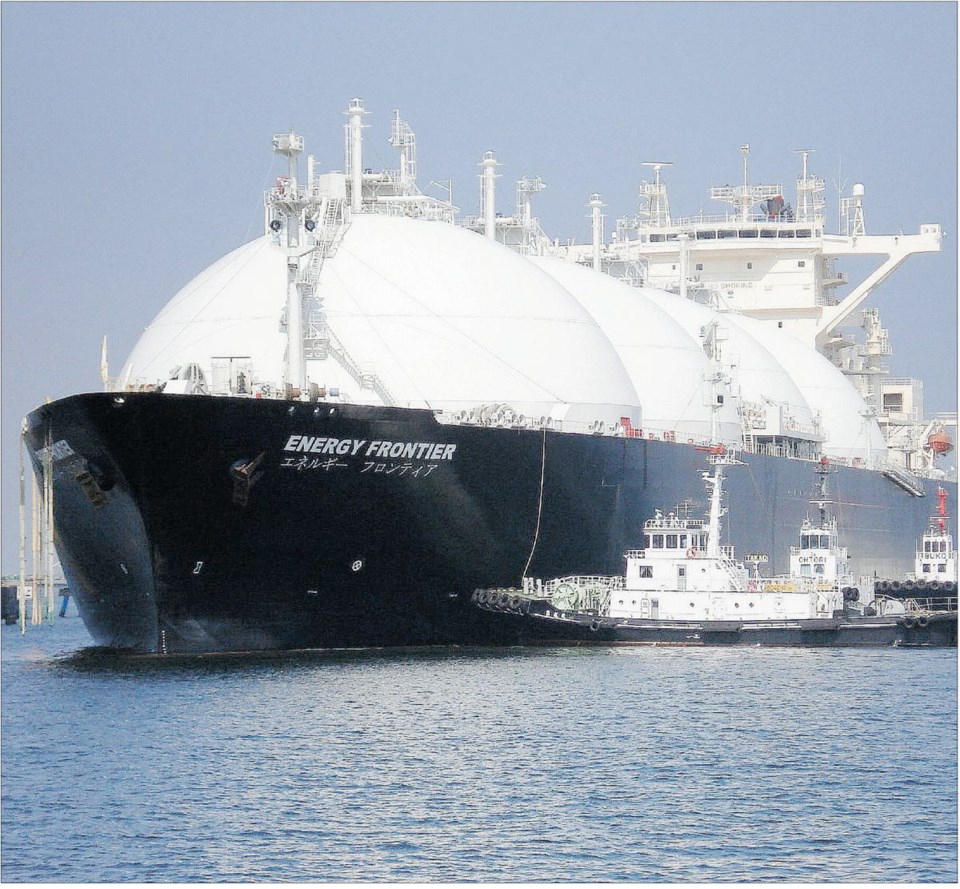British Columbia could emerge as the world's second largest exporter of liquid natural gas if all its proposed LNG projects are developed, a Conference Board of Canada report suggests.
In the short term, Canadian gas production is expected to decline due to low market prices and a glut of cheap United States gas. This is deterring drilling activity all over North America- which is bad news for B.C.'s treasury because it means less royalty revenue to be collected by the province.
The board expects that trend to persist - and even accelerate - through 2019 before emerging demand for gas to support electricity generation and transportation, and construction of infrastructure to support LNG exports pushes up the price even as the volume of gas exported to the U.S. tumbles. Total annual gas production in 2035 will be about five per cent higher than 2012, with B.C.'s output growing as a share of total Canadian production. That's due in part to the massive scale of B.C.'s untapped natural gas reserves, and because production from more developed reserves in Alberta and Saskatchewan has already peaked.
The report's projections don't encompass all of the possible LNG projects that have been bruited about in B.C., including joint ventures involving Apache Resources, Encana, EOG Resources, Shell Canada, Petronas, and their respective partners, for export production by 2021.
Japan, Korea and Taiwan are the primary markets for LNG, with emerging demand in China and India expected to comprise a third of Asian demand by 2025.
"Although Canada does not currently export LNG, efforts to develop new markets for Canadian natural gas have provided new momentum for projects targeting LNG exports to Asian countries," the report said.
"This report does not assume that all projects will proceed. If that were to happen, Canada would go from no LNG exports to being the second largest LNG supplier in the world over a very short period."
Even if just 60 per cent of B.C.'s potential is realized, the natural gas industry will contribute a cumulative total of $940 billion to Canada's economy by 2035 through gas production and investment in new capacity - including $364 billion in real GDP growth.
The sector will support 130,000 jobs and generate $24.5 billion in economic activity (in 2012 dollars) per year across Canada. B.C. will attract the single largest provincial share of investment in new capacity, according to the report.
"The future of Canada's natural gas industry depends critically on these upstream investments being made. Conventional natural gas has been the mainstay of the industry for decades, but is now in decline."
Oilsands processing and gas-fired electricity generation will absorb an "increasing" share of the gas Alberta continues to produce.
Meanwhile, "British Columbia is expected to experience the most investment of any province in Canada as shale gas development proceeds and as LNG export projects are realized," the report said.
Demand for B.C. LNG is expected to grow from zero in 2012 to one trillion cubic feet (TCF) per year while exports via existing pipelines to the U.S. will decline by the same amount over that time.
"British Columbia (by 2035) stands to experience $140 billion in investment - more than $5.8 billion per year on average.
"This level of investment will require a careful and consistent regulatory approach to support the long-term economic viability of the facilities to be constructed while at the same time ensuring that the natural environment is protected and all stakeholders have the opportunity to present their views."
